How To Drift Grass Flats For Speckled Trout
- By: Joseph Simonds
- on
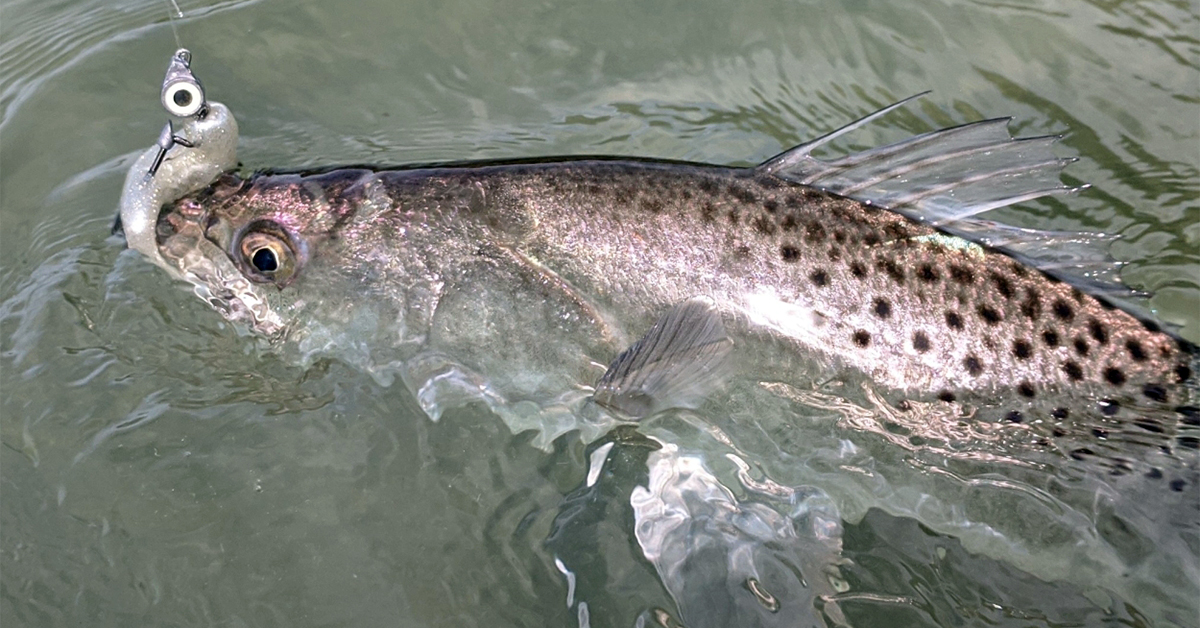
If you had no fancy trolling motor…
And no expensive Power-Pole…
How would you catch fish?
That’s a great question and one that we get asked a lot!
Those pieces of equipment are expensive, and if you’re part of a boat club, like Freedom Boat Club, your rental boat likely doesn’t have these things.
If this is you, we hear you!
In this new live and uncut podcast episode, we decided to show you exactly what we would do in that situation.
So here’s what we did: we found a grass flat in a good spot that was likely to hold fish.
We set ourselves up to let the wind and the current drift us into the feeding zone and we caught a ton of nice trout!
Check out the video below to see exactly what we did and learn:
- What the best lures to use when fishing grass flats for trout are
- Where to find flats that are likely to hold fish
- How to decide when to move spots (and start catching fish again!)
- And much more
You can watch the video version of this podcast below (which I definitely recommend since there was a lot of fish catching footage), listen to the audio version by clicking the play button underneath it, or listen to it on iTunes, Stitcher, or Spotify.
P.S. Don’t forget to subscribe on iTunes, Stitcher, or Spotify and leave us a review!
How To Drift A Grass Flat For Trout [VIDEO]


How To Drift A Grass Flat For Trout [PODCAST]
Note: Don’t forget to subscribe to the Salt Strong podcast on iTunes, Stitcher, or Spotify and leave us a review!


Related Podcasts:
- HOW TO FIND 90% OF ALL FEEDING FISH IN YOUR AREA (90/10 FISHING RULE)
- THIS CHUMMING TRICK HAD SPECKLED TROUT EATING OUT OF OUR HANDS!
Mentioned Lures & Hooks:
How To Drift Flats
The key to drifting grass flats is to set yourself up so that the current and wind take you to where you want to go.
On this trip, we positioned the boat upwind and then let the wind take us down the flat.
To make sure we stayed on course, we used the motor as a tiller.
We didn’t turn it on, but we did turn the wheel to keep us heading in the right direction.
Leaving the motor off lets you stealthily drift a grass flat and decreases the chance you’ll spook fish.
Once you’ve drifted an entire flat you can turn your motor back on and find another flat to drift, or, if the bite was good, you can circle back (without driving through the feeding zone) and drift the same flat.
Where To Find Trout On Grass Flats
Trout can often be found in or around sandy potholes in grass flats.
If the tide is low, you can usually find them near the edge where the flat and deeper water meet, but on this trip, since it was high tide, they were about 50 yards off of the edge of the flat.
As far as depth, it will change every trip, but what you’ll find is that the fish will most likely be holding in the same depth.
For instance, if you catch fish in water that’s 3-5′ deep (like we did on this trip), then other flats that are 3-5′ deep will probably hold fish, while flats that are shallower or deeper might not.
And here’s another tip for finding fish: look for birds.
If you see diving birds, they’re probably feeding on baitfish from above, and there’s most likely predator fish feeding on those same baitfish from below.
You can often find mackerel, jacks, trout, and ladyfish there.
Best Lures To Catch Trout On Grass Flats
One of the keys to our success is that we were using a proven lure.
Paddletails, like the Slam Shady we were using, are proven to catch trout on grass flats.
We rigged them on the Trout Eye Jig Head and just casted them out and did a steady retrieve, occasionally adding in some twitches and pauses.
We’ve caught tons of trout on grass flats using this setup and recommend it to everyone else fishing the same scenario.
And besides the fact that using a proven lure gets strikes, it also helps us focus on what’s important: finding feeding fish.
You’ll notice that when the bite slowed down toward the end of the video we didn’t question if it was the lure that was causing it to slow down, but we questioned the spot.
What happened was we drifted out of the feeding zone, so all we needed to do was go back to where we were catching fish previously and start drifting that area again.
Where many people go wrong is that they stay in dead zones too long trying different lures and wasting time.
If you’re using a lure that you know fish like, then you can put all your time and energy on finding the feeding zones, which is what will actually help you catch more fish.
Conclusion
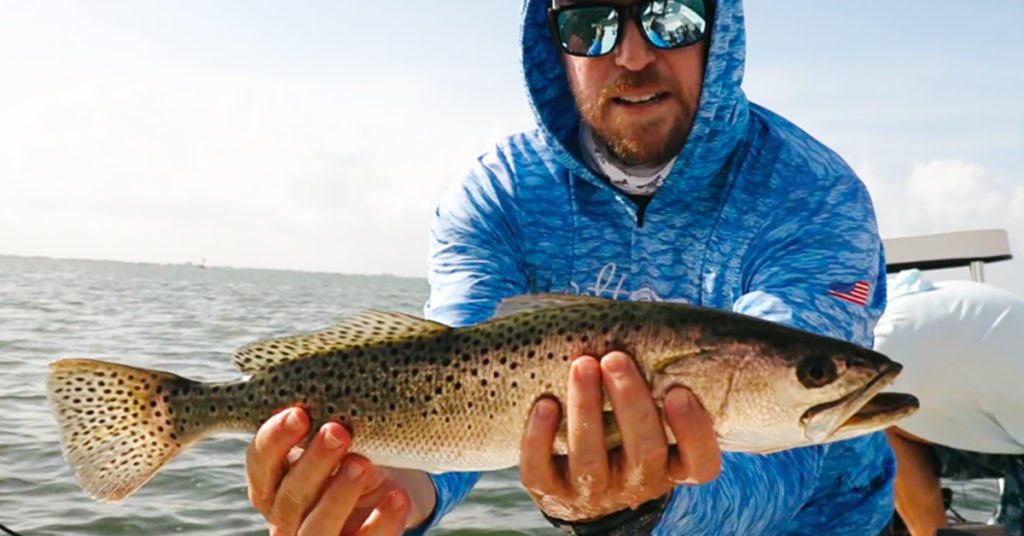
If you don’t have a fancy trolling motor or expensive Power-Poles, you can still catch a ton of fish.
Just find a grass flat, position yourself up current and up wind, and let your boat drift through the feeding zone as you toss out paddletails rigged on jig heads.
This is a great way to get a ton of tight lines and since all you need to do is cast and retrieve, it’s a great way for kids and anglers to catch fish.
Have any questions about drifting grass flats?
Let us know down in the comments!
And if you know someone who needs to learn this type of fishing trip, please TAG or SHARE this with them!
P.S. Want access to our best fishing spots and tips, plus discounts to our online tackle store? Click here to join us in the Insider Club!
Related articles:
Related categories:
STOP WASTING TIME ON THE WATER!
Do what the “SMART ANGLERS” are doing and join the Insider Club.
Here’s what you’ll receive today when you join:
- Weekly fishing reports and TRENDS revealing exactly where you should fish every trip
- Weekly “spot dissection” videos that walk you through all the best spots in your area
- Exclusive fishing tips from the PROS you can’t find anywhere else
- Everything you need to start catching fish more consistently (regardless if you fish out of a boat, kayak, or land).







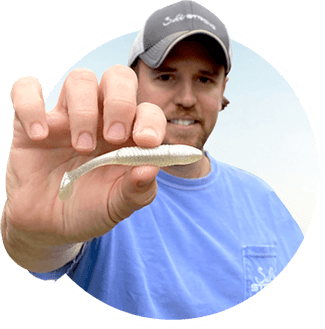
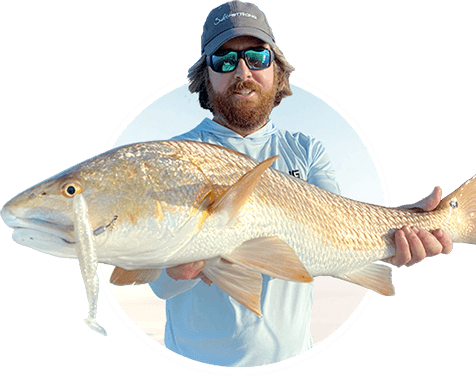
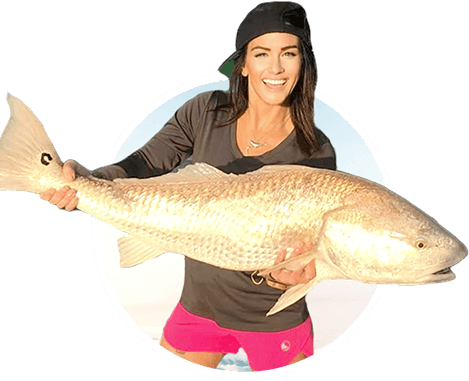
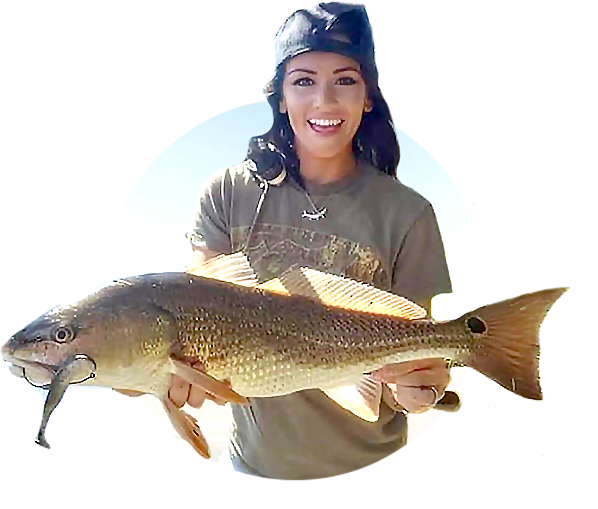
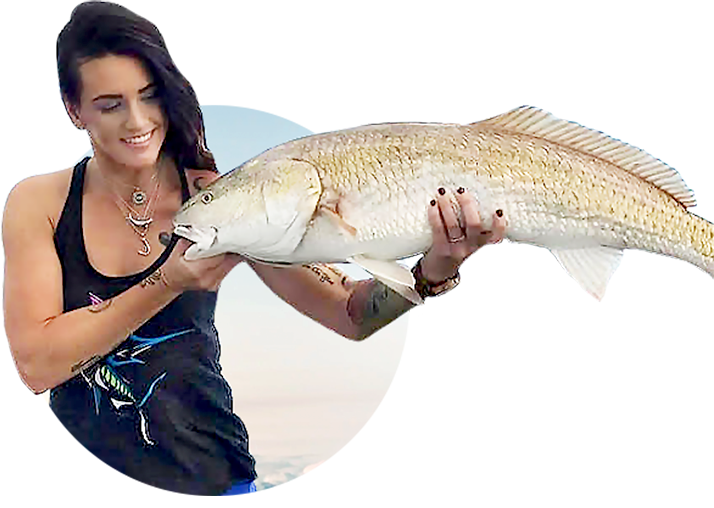

What is a “pothole” and how did you see it to drive to it after cranking motor up?
A pothole on a grass flat is a sand area that’s surrounded by seagrass. These spots are slightly deeper than the grass which makes for great ambush spots for the predators. Spotting them is based on the water clarity… it’s super easy to see them in clear shallow water as seen in this video: https://youtu.be/8ZsvRwezizE?t=272.
As you’re fishing water that is less clear and/or deeper, they are tougher to spot so you’ll need to keep a watchful eye out for any sort of coloration differences in the water.
For approaching a pothole, I make sure to not run the big motor near them because the fish up in the shallows can easily get spooked. Instead, I let the trolling motor and/or wind move me into casting distance to make sure I get my lure to them before they know that danger is in the area.
Thanks for the info
Our pleasure! Thanks so much for making time to leave the nice comment.
Your welcome thank you so much for this creating this site I have been using it since feb.
Your welcome
Hey Luke, I see that you keep your rod tip down while fishing in this video. Why is that? And does it matter with bait or lure?
I keep it down whenever casting across the wind on a windy day so that the wind can’t blow my line around and mess up my retrieve and feel of strikes.
On calm days, I’ll use the height of the rod tip to control the depth of the lure during the retrieve.
What are your thoughts on rigging the Slam Shady on a Eye Strike Texas Eye Jig? Is it too much of a good thing?
That is actually our favorite jig head for slam shady paddletails… works great!
Well Luke, it seems that Joe was putting on the clinic! 😊
It’s about time he did that:)
We had a place in Keaton Beach for 17 years. What you guys are doing is how we fished the grass flats. We catch a little bit of everything including cobia on the flats, might even jump a tarpon. I’ve seen schools have reds that I looked like a school of Bonita on the flats. great job guys, in Northeast Florida now and everything is different but we still find the Fish…
Thanks for making time to leave the nice comment Tom!
you mentioned a slam shady Bomber? not seeing that lure anywhere on your site.
Should have them on the store by Monday!
We do that a lot up here in the Big Bend. There a lots of grass flats. I also use a drift anchor to slow us down.
Yes, the drift anchors are extremely helpful on windy days.
I would have thought that rigging weedless would work better on grass flats but apparently the jig heads are not a problem catching grass
I was thinking the exact same thing.
It’s all about depth… these flats were about 3 ft deep, so the jig head was the ticket because it enabled us to get the lure just above the grass… a weighted hook would have not been able to get deep enough given the depth and wind we were fishing that day.
great video, I never thought of chumming for specks.Plan on trying it, and I bend the barbs down on my treble hooks.
Thanks Mark! Yes, bending barbs down is a great practice for catch and release fishing.